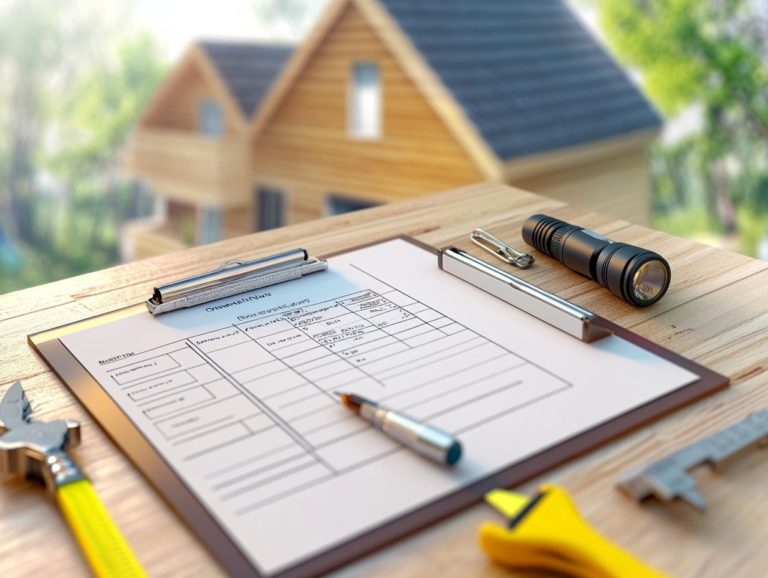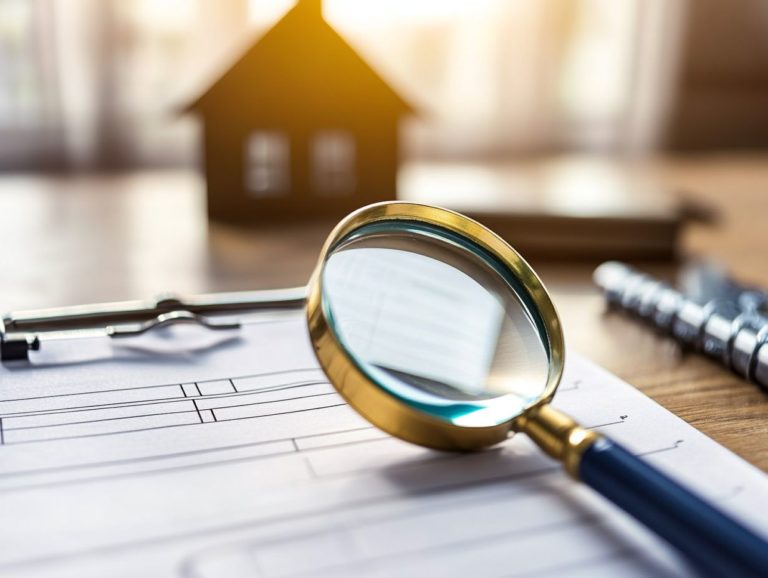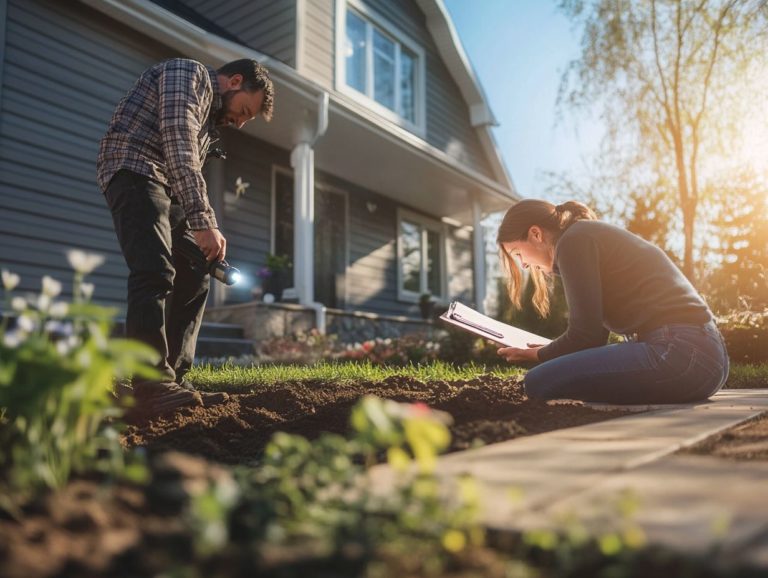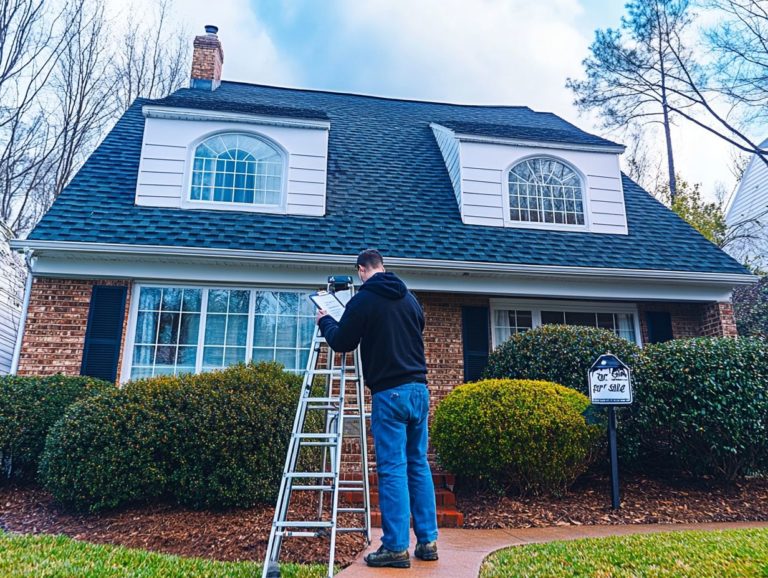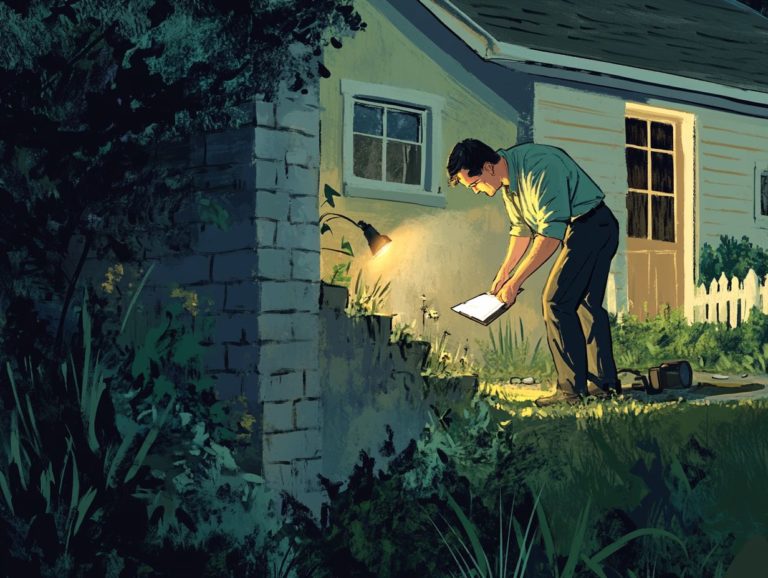What to Know About Home Inspection Policies
Buying or selling a home can feel like navigating a labyrinth, but grasping home inspection policies is essential for making this journey a confident one.
This article unpacks what a home inspection involves and highlights its significance for both buyers and sellers. You’ll learn what to expect during the inspection process, identify common issues that might pop up, and discover how to select the right inspector for your needs.
You’ll also find tips on negotiating repairs, along with insights into how inspection policies can differ among various property types. Arm yourself with this crucial knowledge!
Contents
- Key Takeaways:
- Understanding Home Inspection Policies
- The Importance of Home Inspections
- What to Expect During a Home Inspection
- Common Issues Found in Home Inspections
- How to Choose a Home Inspector
- Negotiating Repairs After a Home Inspection
- Home Inspection Policies for Different Types of Properties
- Preguntas Frecuentes
- Qu es una pol tica de inspecci n de viviendas?
- Por qu es importante conocer las pol ticas de inspecci n de viviendas?
- Qui n crea las pol ticas de inspecci n de viviendas?
- Qu tipos de problemas se informan t picamente en una pol tica de inspecci n de viviendas?
- Son las pol ticas de inspecci n de viviendas las mismas en todas partes?
- Debo seguir las recomendaciones en una pol tica de inspecci n de viviendas?
Key Takeaways:
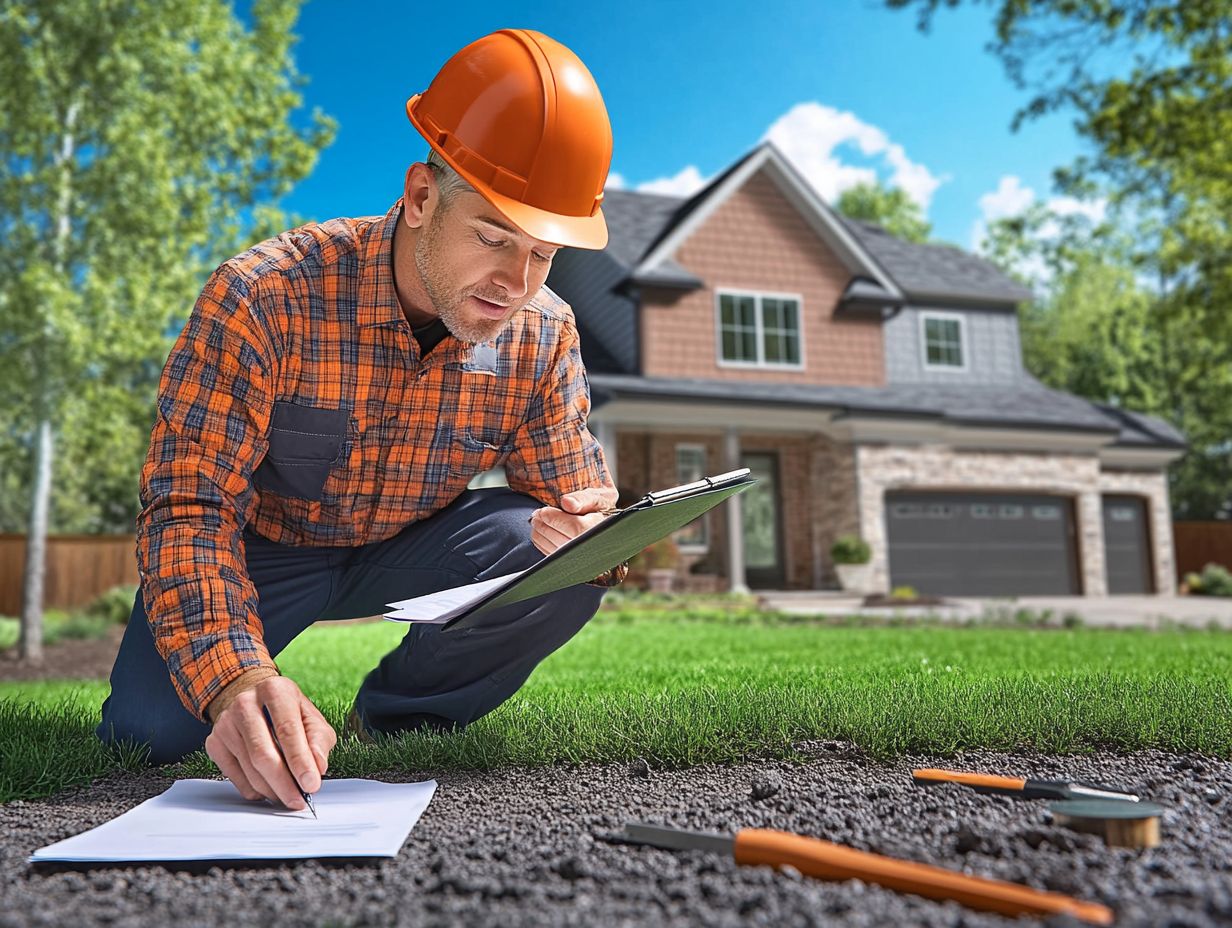
A home inspection is a thorough examination of a property’s condition, including its structure, systems, and potential issues. Home inspections are important for both buyers and sellers as they can reveal any major problems and help inform negotiations. When choosing a home inspector, consider their qualifications, experience, and ask for references to ensure a thorough inspection.
Understanding Home Inspection Policies
Understanding home inspection policies is essential for you as both a buyer and a seller in the real estate market. This evaluation uncovers issues that you might not see, delivering a comprehensive home inspection report that spotlights serious concerns, from the roof down to the foundation.
As a buyer, it s your final chance to raise questions and negotiate repairs before sealing the deal. Meanwhile, as a seller, you may find yourself obligated to address any significant problems that arise, paving the way for a smoother transaction.
Following professional standards ensures you have a clear and trustworthy home buying experience.
What is a Home Inspection?
A home inspection is an in-depth evaluation of a property’s condition, typically carried out by a seasoned home inspector. This process is designed to uncover potential issues that could impact both the value and safety of your home.
During this meticulous assessment, various aspects are examined, including the stability and safety of the building’s structure, roofing, insulation, and, most importantly, critical systems like plumbing and electrical setups.
By utilizing a home inspection checklist, you ensure a thorough evaluation, allowing you to identify potential red flags that might escape the notice of an untrained eye.
The inspector plays a crucial role, using their expertise to pinpoint serious concerns, such as water damage from a faulty plumbing system or outdated wiring that could pose safety hazards. This equips you, whether a prospective buyer or a current homeowner, with the essential knowledge needed to make informed decisions about your property.
The Importance of Home Inspections
Home inspections play a crucial role in the real estate journey, offering both buyers and sellers a comprehensive insight into a property’s condition. They reveal significant issues that could impact buying eligibility or shape the outcomes of negotiations.
Benefits for Buyers and Sellers
Home inspections present a wealth of advantages for both buyers and sellers, ensuring that everyone is informed about significant issues and potential costs that may arise post-sale. For buyers, these inspections are essential. They serve as a vital tool for uncovering necessary repairs, giving you the power to negotiate price reductions or request fixes before closing.
This approach not only aids in budgeting for future expenses but also grants you the peace of mind that comes from understanding the property’s true condition.
On the other side of the equation, sellers have much to gain by addressing any issues beforehand. By taking proactive steps, you can potentially enhance your property’s market value.
Transparency about your home’s state fosters trust and streamlines the sales process, making it more appealing to potential buyers.
What to Expect During a Home Inspection
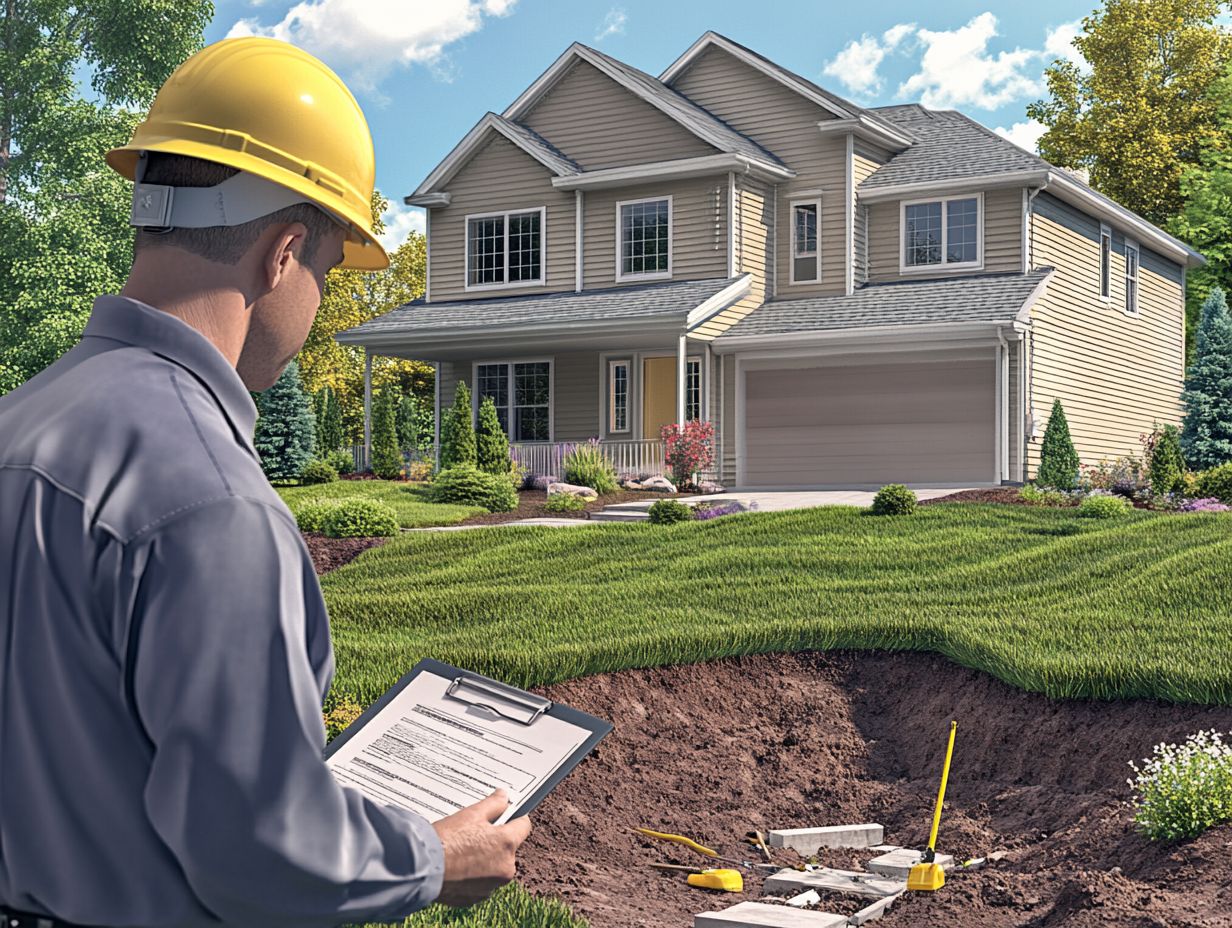
During a home inspection, you can expect a thorough assessment of the property, meticulously guided by an inspection checklist that highlights critical areas of concern. This process transforms home inspection day into a vital component of your real estate transaction journey.
Ready to take the next step? Schedule your home inspection today!
The Process and Timeline
The home inspection process usually spans about two to three hours, depending on the property’s size and the extent of the inspection being performed.
Once you ve scheduled the inspection typically through a qualified inspector, either via your real estate agent or directly you can anticipate a careful check of your property. The inspector will take a close look at vital areas such as the roof, foundation, plumbing, and electrical systems. It s helpful to be present during this time; doing so allows you to ask questions and gain valuable insights into any potential issues.
After the inspection concludes, the inspector will create a detailed report, which usually takes a few additional days to deliver. This document will outline findings, concerns, and recommendations, giving you a clear understanding of the property’s condition and assisting you in any necessary negotiations.
Common Issues Found in Home Inspections
Common issues encountered during home inspections can vary widely, encompassing everything from minor repairs to significant concerns that could profoundly impact both the safety and value of a property.
You might come across structural issues, electrical system deficiencies, and plumbing concerns that warrant your attention.
Structural, Electrical, and Plumbing Concerns
Structural, electrical, and plumbing concerns are some of the most critical findings during a home inspection. Addressing these issues promptly is essential, as they can lead to serious safety hazards and costly repairs down the line.
For example, signs of compromised structural integrity might show up as uneven floors or cracking walls, hinting at potential foundation risks. Outdated or improperly installed electrical systems could spell disaster, resulting in dangerous malfunctions or even fires.
Plumbing issues, like hidden leaks, can wreak havoc too, leading to extensive water damage and mold growth. These concerns aren’t just minor inconveniences; they present immediate risks to residents and can significantly impact the overall home inspection report. If left unchecked, they can affect the property’s value and complicate future insurance claims.
How to Choose a Home Inspector
Selecting the right home inspector is paramount; their qualifications and expertise can profoundly influence the quality of the inspection and the depth of insights offered in the home inspection report.
Making an informed choice here sets the foundation for a comprehensive understanding of your prospective home.
Factors to Consider and Questions to Ask
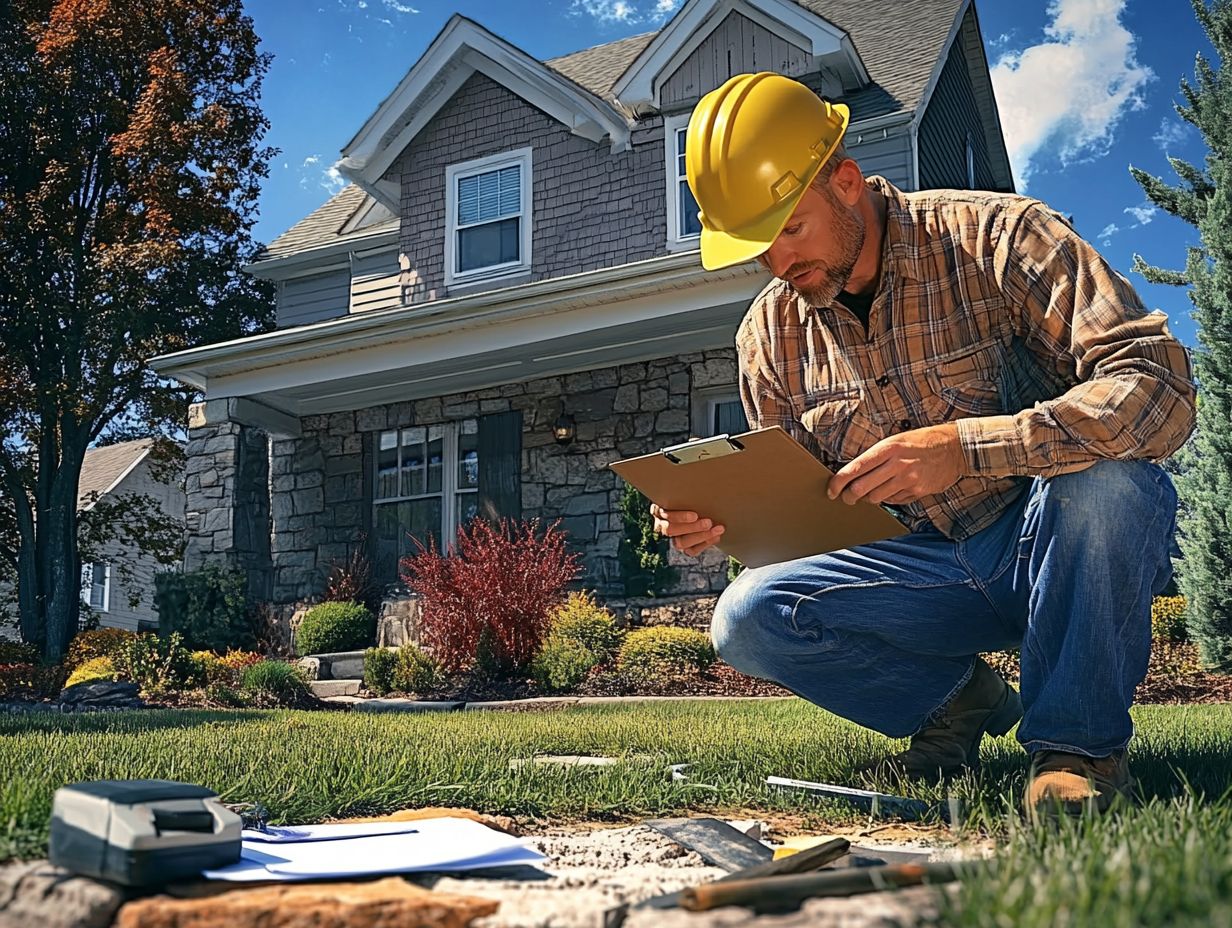
When selecting a home inspector, you should carefully consider their qualifications and ask the right questions to gauge their experience and competency in conducting thorough inspections.
Understanding the importance of factors such as licensing meaning the inspector is certified to work insurance, which protects you against potential mishaps, and a solid track record will help ensure that the inspector you choose is reliable and knowledgeable.
It s wise to inquire about the inspector’s specific credentials ask whether they’ve completed relevant training or belong to any professional organizations. Also, discover how many inspections they’ve conducted, especially on homes similar in age and condition to yours; this can offer you valuable insights into their experience.
Consider inquiring about the inspection process itself and the type of reports they provide afterward. This will further clarify their thoroughness and professionalism, ensuring you make an informed choice.
Negotiating Repairs After a Home Inspection
Negotiating repairs following a home inspection is a pivotal moment in the home buying journey. Act quickly this could significantly impact your new home.
This process gives you the power to address significant issues uncovered during the inspection, allowing you to effectively communicate these concerns and potentially secure concessions from the seller.
Tips for Successful Negotiations
Successful negotiations after a home inspection depend on clear communication and a solid strategy for addressing serious issues that arose during the evaluation.
Start by researching the property’s market value to set realistic expectations during discussions.
Gather all relevant information about repair costs and potential follow-up expenses to strengthen your negotiating position.
When presenting your findings, adopt a collaborative tone that encourages the seller to consider necessary concessions regarding repairs.
Specific requests could include a reduction in the sale price or a credit toward repairs, helping both parties reach an amicable agreement while protecting your long-term investment.
Home Inspection Policies for Different Types of Properties
Home inspection policies vary significantly based on the property type, whether it s a single-family home, a condo, or a multi-unit building.
Each type presents unique challenges and considerations during the inspection process.
Single-Family Homes, Condos, and Multi-Unit Buildings
Single-family homes, condos, and multi-unit buildings each have tailored home inspection policies reflecting their structural and ownership characteristics.
For single-family homes, inspections typically focus on foundation condition, roof status, and Heating, Ventilation, and Air Conditioning (HVAC) system efficiency. Watch out for red flags that could cost you down the road, like outdated wiring or plumbing issues.
In the case of condominiums, the approach shifts. Inspections often emphasize shared systems like fire alarms and elevator maintenance. It s essential to review not just your unit but also the building s overall condition and relevant HOA regulations.
For multi-unit buildings, challenges multiply. Inspectors usually evaluate fire safety protocols, rental unit conditions, and communal areas. As a seller, prepare by addressing known issues and providing access to maintenance histories or warranties. This proactive approach ensures a smoother transaction for everyone involved.
Preguntas Frecuentes
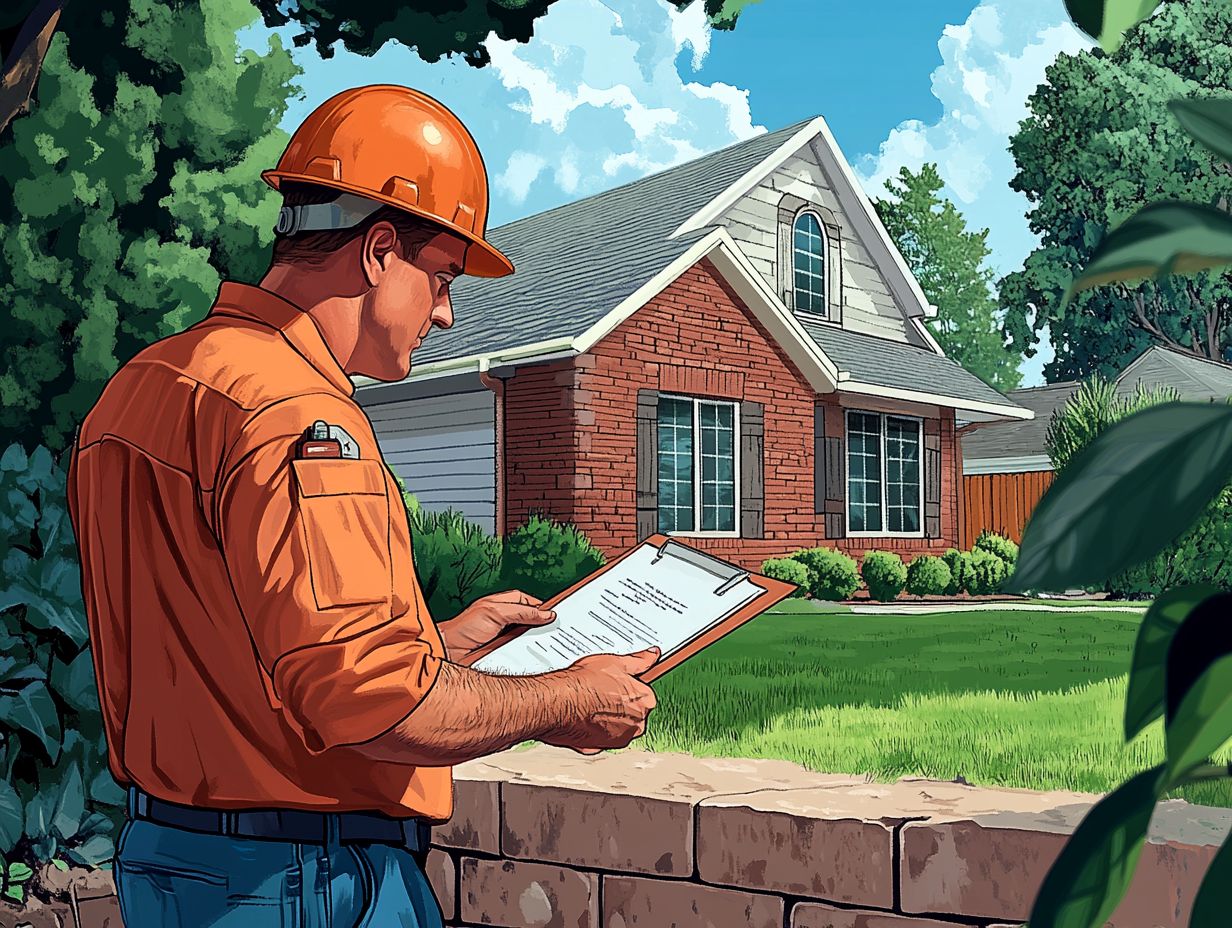
Qu es una pol tica de inspecci n de viviendas?
Una pol tica de inspecci n de viviendas es un conjunto de pautas y procedimientos que dictan c mo se lleva a cabo una inspecci n de viviendas. Describe qu reas de la vivienda se inspeccionar n, las calificaciones del inspector y qu tipos de problemas se informar n.
Por qu es importante conocer las pol ticas de inspecci n de viviendas?
Conocer las pol ticas de inspecci n de viviendas es crucial porque asegura que entiendas qu est incluido en la inspecci n y qu no. Esto te permite tomar decisiones informadas sobre la compra o venta de una vivienda en funci n de los resultados de la inspecci n.
Qui n crea las pol ticas de inspecci n de viviendas?
Las pol ticas de inspecci n de viviendas suelen ser elaboradas por empresas de inspecci n, organizaciones profesionales o agencias gubernamentales. Estas pol ticas est n dise adas para proteger tanto al inspector como al cliente al proporcionar pautas claras a seguir durante el proceso de inspecci n.
Qu tipos de problemas se informan t picamente en una pol tica de inspecci n de viviendas?
Una pol tica de inspecci n de viviendas puede cubrir una variedad de problemas, incluyendo la integridad estructural, sistemas el ctricos, fontaner a, HVAC y m s. Es importante revisar la pol tica para entender qu reas ser n inspeccionadas y qu tipos de problemas se informar n.
Son las pol ticas de inspecci n de viviendas las mismas en todas partes?
No, las pol ticas de inspecci n de viviendas pueden variar dependiendo de la ubicaci n y la empresa u organizaci n que las cre . Es vital revisar la pol tica espec fica para el inspector que has elegido para asegurarte de comprender sus procedimientos y calificaciones.
Debo seguir las recomendaciones en una pol tica de inspecci n de viviendas?
No tienes que seguir las recomendaciones en una pol tica de inspecci n de viviendas. Sin embargo, es muy recomendable hacerlo.
Estas sugerencias provienen de la experiencia del inspector. Te ayudar n a identificar problemas que podr an surgir al comprar una casa.

